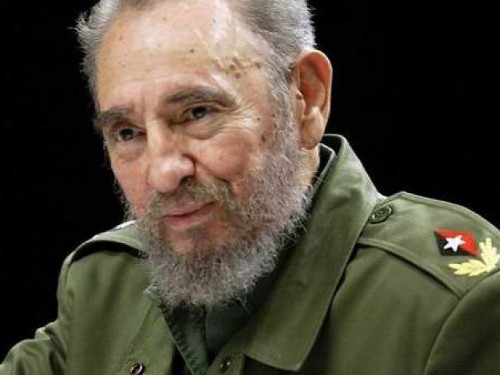
Former Cuban president Fidel Castro has broken his silence for the first time on normalising ties with the US, supporting the development with a touch of caution.
In a message to students at the University of Havana, he said he did not trust US policy, although he supported negotiations and peaceful solution to conflicts in accordance with international standards, Efe news agency reported.
“I don’t trust US policies and have not exchanged a word with them. This does not mean, however, that I would oppose a peaceful solution to conflicts or threats of war,” Castro said in a message Monday read by Randy Perdomo, the president of the University Students Federation. It was broadcast on the state television.
Referring to the re-establishment of US-Cuban relations, Castro stated that “the president of Cuba (Raul Castro) has taken the pertinent steps in accordance with his prerogatives and the powers given to him by the National Assembly and the Communist Party of Cuba”.
“Any peaceful or negotiated solution to the problems between the United States and the peoples or any people of Latin America that doesn’t imply force or the use of force should be treated in accordance with international norms and principles,” he added.
He also stated: “We will always defend cooperation and friendship with all the peoples of the world, among them our political adversaries.”
The elder Castro, brother of Raul, indicated that the ominous threats looming over humankind today should give way to norms compatible with the notion of human dignity, according to a TASS news agency report.
Castro’s comments were his first pronouncement on the historic diplomatic rapprochement between Cuba and the US, following a break of more than 50 years, announced last month by Presidents Raul Castro and Barack Obama.
The former Cuban president has not appeared in public in a year and the latest photographs were published in August on the occasion of a visit by Venezuelan President Nicolas Maduro.
Castro’s message came three days after the end of the first round of official contacts between Havana and Washington held in Cuba to agree on a road map on restoring relations.
Castro, 88, quit the presidency due to ill health in 2006.
On Dec 17, 2014, President Obama made public the plans to open a new chapter in relations with Cuba. He admitted that the policy of isolation of Cuba for more than five decades had not produced the desired results and said the trade embargo against Havana would be mitigated.
A full abolition of sanctions requires Congressional approval.
On the same day, Raul Castro confirmed that Cuba and the US had agreed to resume diplomatic relations. He stressed Havana’s abidance by “a respectful dialogue based on the principle of sovereign equality”.
He called on Washington to lift the trade and economic blockade, which Cuba has lived under since 1961.
By Tuesday, US financial institutions have received the right to open corresponding bank accounts in Cuba and to work with Cuban companies located outside of the island, the TASS report said.
Also, trips to Cuba have been made easier for some categories of US citizens and workers of certain organisations.
Opportunities for Cuban-US collaboration in telecommunications and trade have expanded as well.